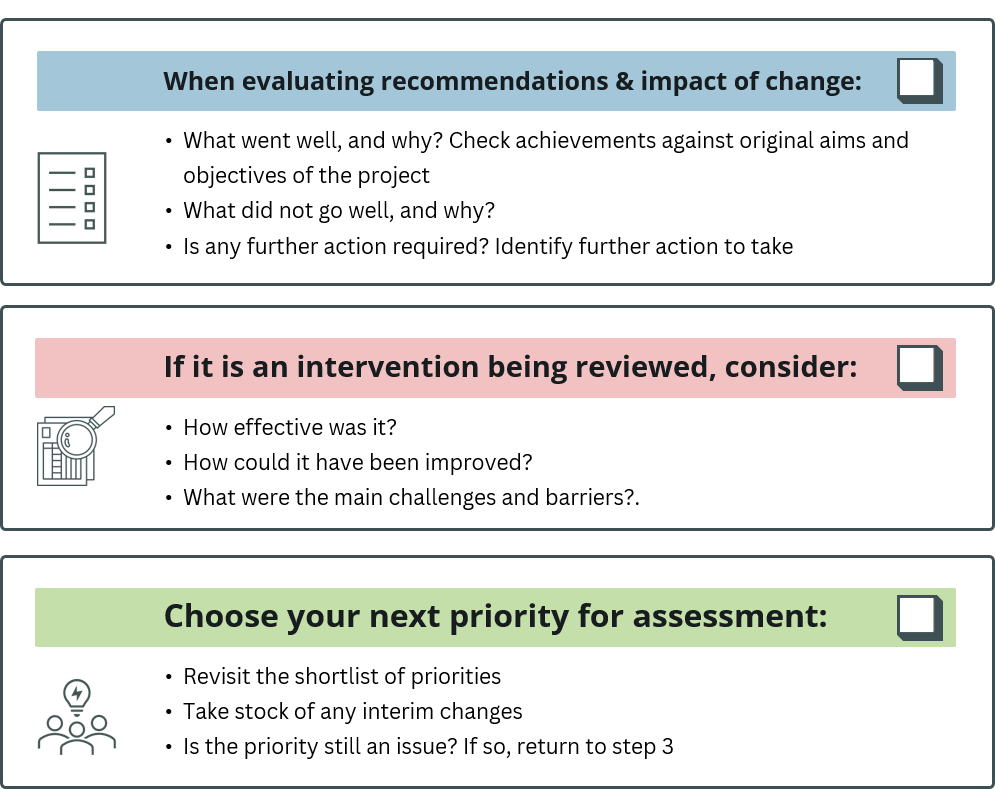Stage 5 – Evaluation
It is important to plan at the outset what you would like to evaluate as part of the process of translating the key findings of a JSNA into action. It is important to consider both the short and long term evaluation objectives and the potential cost-effectiveness of recommendations or changes. In the short term one of your key evaluation objectives should be to review the JSNA process as a whole and whether there are lessons which could be learned and how it could be improved going forward. This should be achieved through creating a learning culture which builds on the cycle that the JSNA starts allowing you collectively to strengthen and improve any evaluation you undertake.
In the longer term, evaluation of any recommendation(s) or change(s) identified through undertaking a JSNA is an important step of the JSNA process. It is key to informing what has worked, what hasn’t work and how things could be improved going forward.
Types of evaluation
There are different types of evaluations, ranging from simple service evaluations to complex research projects. Each evaluation requires a different approach depending on its purpose, evidence base, and stage of development, context, resources and timescales.
Undertaking evaluation allows you to focus on implementation and learning (formative evaluation), how a service works (process evaluation) or whether it has worked and delivered expected benefits (outcome or summative evaluation) – or all of these aspects as part of the JSNA process cycle.
Handy tools to support evaluation
Fig 15. Handy checklist of questions you should consider when undertaking evaluation.

Click on the image to make it larger.
There are already NHS Grampian resources available to support undertaking evaluation which are helpful to refer to when planning your evaluation – these can be found in The Grampian Evaluation Network – Hi-Net Grampian
Evaluation is a key skill outlined in the Good Practice Skills in Strategic Planning skills framework in the “Review” section p14.
Previous – Stage 4 – Planning for change